- Home
- Franz Kafka
The Lost Writings Page 7
The Lost Writings Read online
Page 7
I went abroad to live among foreigners. I hung my coat on a nail, no one looked after me. I was left alone, it was understood that I posed no danger. What can one man do against a great crowd anyway. I was there, and people left me the responsibility for my decision. I had probably been forced to it, I had needed some refuge, that will have been the tacit assumption. The further assumption was that I wouldn’t be able find such a refuge, people could see how poorly I could assimilate myself, conditions there would be too alien, I was out of place. But all that was hardly given to me to feel, people were far too occupied with their own affairs, perhaps with my particular gifts and experience I could even be useful to them, but I didn’t dare to intervene and they in turn didn’t dare to involve me, the danger that in my strangeness I would make a mess of something was simply too great.
I have — who else may speak so freely of his gifts — the contented and indefatigable wrist of an old fisherman. Picture me sitting at home before going out fishing and marveling at it as I turn my right hand this way and that. It’s enough on its own to reveal to my sight and sense the outcome of a future fishing expedition, often down to the last detail. I can see the water of my angling spot, the particular current and the particular hour, a cross section of the stream reveals itself to me, and the fish, unmistakable in number and kind; I seem to see ten, twenty, even a hundred different spots on the river in cross section, and I know just how to hold the rod, there are some that with impunity butt through the imaginary line with their heads, then I dangle my hook in front of them and already I have them on my line — the brevity of the moment of destiny charms me as I sit at my table — other fish thrust forward as far as their bellies, and I must hurry, some I am still able to capture, others get past the dangerous line tail and all and for the moment they are lost to me, although only for the moment, because to a real angler no fish is ever really lost.
When one night the small mouse that in the mouse world was loved as no other came under the blade and with a scream gave up her life for a piece of bacon, all the mice in their holes all around were taken by a trembling and shaking; their eyes blinking uncontrollably, they looked at one another in turn, while their tails in terrible agitation swept across the floor this way and that. Finally, reluctantly, they came forth, one pushing the other, all drawn to the place of death. There lay the dear little thing, in its neck the steel blade, the pink legs flattened, the feeble body frozen, to which a morsel of bacon would have been so welcome. There stood the parents, eyeing what was left of their child.
In our house, that massive building on the outskirts of town, a tenement block built around some indestructible medieval ruins, on this cold and foggy winter’s morning the following appeal was put up.
To all my fellow inhabitants:
I own five toy rifles hanging on five hooks in my wardrobe. One of them is mine, I invite offers for the other four, if there are more than four interested parties, then those more than four will be asked to bring along their own rifles and leave them in my wardrobe. We need a proper basis, without a proper basis we will get nowhere. My rifles are of no practical use, the mechanism is broken, the corks are lost, only the hammer still clicks. It will not be difficult to get hold of more such rifles if necessary. But I will be happy even if fellows come forward without rifles, and at least to begin with, those of us with rifles can take them in our midst if it comes to that. This was a fighting formation that proved itself with the early American settlers against the Indians, and why should it not come in useful here, where circumstances are similar. In the long run, rifles are not essential. Even my five rifles are not essential, but seeing as they exist and I have them, they may as well be used. If the next four are unwilling to carry them, then never mind. Then as commander I alone will be armed. But we don’t want a leader and so I too will either break or cast aside my rifle.
That was the first appeal. In our building no one has the time or inclination to read or even think about such appeals. Before long the little notices were awash in the stream of dirt that ran down from the attic, fed by all the corridors, swilling down the stairs and there fighting the current that came up from below. Then a week later, there was a second announcement.
My fellow dwellers!
To date no one has reported to me. When not required to earn my living, I was in the house all the time, and while I was away — keeping the door to my room open — there was on my desk a sheet of paper, on which anyone who had wanted to could have written down their names. It seems no one has done so.
When I got home at night, I found in the middle of the room a good-sized, really an outsize egg. It was almost as high as the table and accordingly curved. It wobbled gently this way and that. I was terribly curious, gripped it between my knees and carefully cut it open with my pocketknife. It was already fertilized. Crumpling, the shell fell apart and out leapt a still unfledged stork-like bird beating the air with its too-short wings. “What are you doing in our world?” I wanted to ask it, kneeling down in front of it and gazing into its frightened blinking eyes. But it left me and hopped away half-fluttering along the walls as though it had sore feet. “We can help each other,” I thought; I unpacked my supper on the table and beckoned to the bird, which was just drilling into a couple of my books with its beak. He came right away, sat down on a chair, evidently he was a little house-trained already, with whistling breath he sniffed at the slice of sausage I had set down in front of him, only to spike it with his beak and flip it back to me. “My mistake,” I thought, “it stands to reason you don’t take something just emerged from its egg and offer it sausage. A woman’s hand would have been helpful at this stage.” And I looked at it sharply to see if it might be possible to intuit its favored diet. “If,” it occurred to me, “if it comes from the stork family, then it will be wanting fish. Well, I am prepared to provide fish. Albeit not for nothing. My income will hardly permit me to keep a domestic bird. If I am to make such a sacrifice, then I will expect in return a life-enhancing service of equal value. He is a stork, so once he is full grown on my fish, why doesn’t he take me with him to southern climes. I have long desired to go there, and the only reason I haven’t is want of storks’ wings” So I took out paper and ink, into which I dunked the bird’s beak, and experiencing no resistance from the bird, wrote as follows: “I, stork-like bird, in the event that you provide me with fish, frogs, and worms” (these last two items I wrote down purely on conventional grounds) “till I am fully fledged, do hereby undertake to carry you on my back to southern climes.” Then I wiped its beak and held the paper in front its eyes for approval, before folding it up and stowing it in my briefcase. Then straightaway I went out for fish; on this occasion I was obliged to pay the full price, but the fishmonger promised to keep spoilt fish and an abundance of worms for me at a discount. Perhaps the voyage to southern climes would turn out to be a bargain after all. And I was delighted to observe the bird’s appetite. With gurgles, the fish went down and filled the pinkish belly. Day after day, not at all like human infants, the bird made progress in his development. Admittedly, the reek of rotten fish never left my room, nor was it easy to find and remove the waste of the bird on each occasion, and also the winter season and the price of coal prohibited the highly needful airing out of the place — what did it matter, come spring I would be swimming through the lightsome air to the gleaming southland. Its wings grew, acquired a covering of feathers, its muscles strengthened, finally it was time to embark on some trial flights. Regrettably, there was no mother stork handy, and despite the bird’s willingness to learn, my own teaching would probably not be sufficient. But evidently he knew enough to see that by concentrating on me and paying close attention he could make up for the deficiencies in my tuition. We began with the chair flight. I got up, he followed, I jumped down with outspread arms, he fluttered after. Later we progressed to the table, and finally to the wardrobe: all our flights were systematically repeated many times.
Conventional accounts
of world history often fail us completely, and human intuition often leads one astray, but it does take one somewhere, and doesn’t desert one. Hence the traditional report of the Seven Wonders of the World has always been accompanied by a rumor that there was also an eighth, and of this eighth there were various possibly contradictory accounts, their uncertainty being accounted for by references to the dim and distant past.
You don’t have to leave the house. Stay at your desk and listen. Or don’t even listen, wait for it to bother you. Don’t even wait, be completely quiet and alone. The world will offer itself to you to be unmasked, it cannot do otherwise, it will writhe in front of you in ecstasies.
“Ladies and gentlemen,” thus the address of the Arab in Western clothes to the group of tourists who barely heard him but gazed, stunned by wonder, at the extraordinary construction that loomed up in front of them from the cold stone floor, “you will admit that my firm far outperforms all other tour operators, even those with venerable reputations, and rightly so. While these competitors, in the old and slipshod manner, show their clients the seven wonders of the world, our firm shows the eighth.”
We have all heard tell of Red Peter — half the world has. But when he came to perform in our town, I decided I would get to know him personally. It’s surprisingly easy to gain access to him. In the great cities where the whole world clamors, cannily, to be admitted to see the great celebrities breathing in close proximity, there may be certain difficulties; here, where people are content to remain in their seats and gawp at remarkable things from gawping distance, I was, as the hotel porter told me, the only one so far to have announced a visit. The impresario, one Herr Busenau, received me cordially. I hadn’t expected to see such a modest, almost insignificant-looking fellow. He was sitting in Red Peter’s anteroom, eating a custard pudding. Although it was still morning, he was already in the tails he wore to performances. No sooner did he catch sight of me, the insignificant, unknown visitor, than he leapt up, the owner of lofty distinctions, the king of animal tamers, the holder of honorary degrees from the great universities — leapt up, shook me warmly by the hand, bade me sit down, wiped his spoon on the tablecloth, and graciously offered it to me that I might finish his custard pudding. He refused to accept my polite refusal and set about feeding me himself. It was all I could do to push him away with plate and spoon. “It’s so nice of you to have come,” he said to me in a marked accent, “very nice indeed. Also, you’ve come at the right time, it’s an unfortunate thing that Red Peter isn’t always up to visits, he’s often loath to see people; at such times no one can be admitted, regardless of who they are, even I, even I myself am only allowed to visit him on a business basis, so to speak, on the stage. Then straight after the performance I have to disappear, while he goes home alone, locks himself up in his room, and usually stays there till the following evening. He always has a large basket of fruit in his room, and that keeps him going during such episodes. Naturally, I never leave him entirely unsupervised; I am careful to take the apartment opposite, and I watch him from behind drawn curtains.”
“As I sit opposite you like this, Red Peter, listen to you speak, raise a glass to you, really — I don’t mind whether you take it as a compliment or not, it’s the plain truth — I quite forget that you’re a chimpanzee. It’s only by and by, as I find my way back to reality from my thoughts, that my eyes show me whose visitor I actually am.”
“Yes.”
“You’ve gone so quiet, why is that? Only a moment ago, you were sharing with me your astoundingly pertinent views of our town, and now so quiet.”
“Quiet?”
“Is something the matter? Should I call your trainer? Perhaps you’re accustomed to having a meal at this time?”
“No, no. Everything’s all right. I can tell you what the matter was. Sometimes I feel such an antipathy to humans that I am close to vomiting. Of course, it’s nothing to do with the individual, or your gracious presence. It’s directed against the species as a whole. Nor is there anything unusual about this, for instance if you’d been in the habit of living with apes, I’m sure you would have such spasms as well, for all your self-control. And it’s not so much the smell of humans that so disgusts me as the human smell I have taken on myself, and that is mingled with the smell of my old homeland. Here, smell it yourself! On my chest! Dig your nose deeper into my pelt! Deeper, I tell you.”
“I’m afraid I don’t have a terribly acute sense of smell. I seem to pick up the usual smell of a cared-for body, nothing beyond that. Admittedly, the noses of city dwellers are not representative. I expect you can smell thousands of things that pass us by.”
“Used to, sir, used to. It’s different now.”
“Since you’ve broached the topic, might I ask: how long is it that you have been living among us?”
“Five years now. On August 5, it will have been five years.”
“Extraordinary. To throw off your simian origins and in the space of five years to have galloped through the whole of human evolution. No one can have done that before you. In that regard, you surely have the field to yourself.”
“I know it’s a lot, and sometimes it feels like more than I can deal with. In my calmer hours I don’t view things as exuberantly. Do you know how I came to be captured?”
“I’ve read everything that’s been published about you. You received a wound from a gunshot and were taken prisoner.”
“Yes. In fact, I was shot at twice, once here in my cheek, of course the wound was much bigger than the scar is now, and a second time in the hip. Let me pull down my trousers and show you the place. The bullet hit me like this, and that was the more serious wound, I fell out of my tree, and when I came around I was in steerage in a cage.”
“In steerage! In a cage! One takes a different view of such events, hearing you relate them.”
“And it’s different again if one has experienced them, sir. Till that point I hadn’t known what that means: to have no way out. This was no four-sided cage with bars, there were only three walls, and they were made fast to a chest, the chest constituted the fourth wall. The whole thing was so low to the ground that I was unable to stand up, and so narrow that I couldn’t sit down with my legs extended. All I could do was squat there with my knees pressed against me. In my rage I couldn’t bear to see anyone, and I remained facing the chest, hunkered there for days and nights with knees trembling while the bars cut into my back. This sort of accommodation for wild animals is approved for the early days, and with my experience I can’t deny that from the human perspective there’s something to it. But what did I care about the human perspective in those days? I was facing the chest: rip away the planks, bite a hole in them, squeeze yourself through a chink that in reality is barely wide enough to be looked through, and whose aspect the first time you saw it was enough for you to greet it with a blissful howl of incomprehension. Where do you want to go? The world begins beyond the boards.”

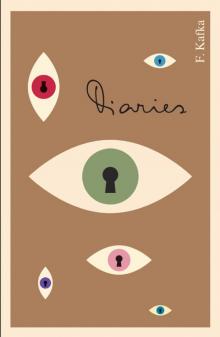 Diaries of Franz Kafka
Diaries of Franz Kafka Metamorphosis and Other Stories
Metamorphosis and Other Stories The Castle: A New Translation Based on the Restored Text
The Castle: A New Translation Based on the Restored Text The Complete Stories
The Complete Stories In the Penal Colony
In the Penal Colony The Trial
The Trial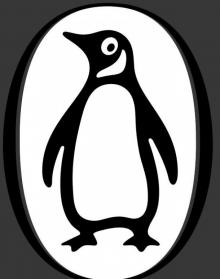 Amerika
Amerika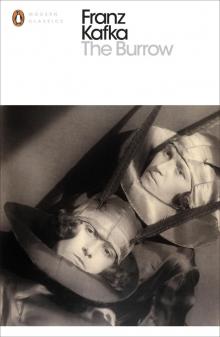 The Burrow: Posthumously Published Short Fiction
The Burrow: Posthumously Published Short Fiction Sons
Sons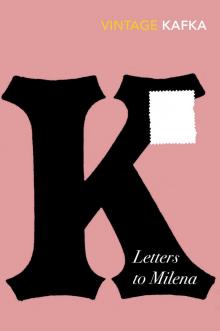 Letters to Milena
Letters to Milena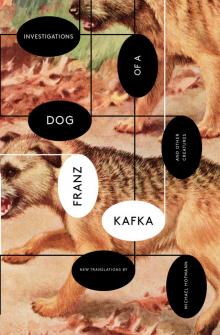 Investigations of a Dog: And Other Creatures
Investigations of a Dog: And Other Creatures Collected Stories
Collected Stories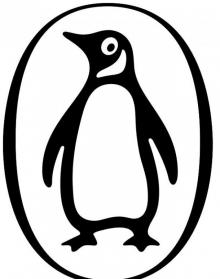 The Great Wall of China
The Great Wall of China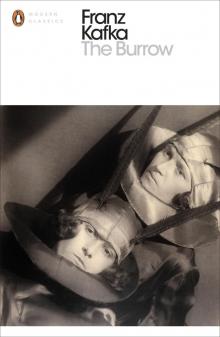 The Burrow
The Burrow The Castle
The Castle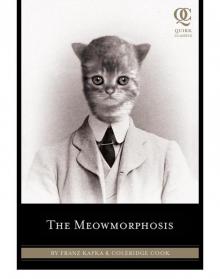 The Meowmorphosis
The Meowmorphosis The Sons
The Sons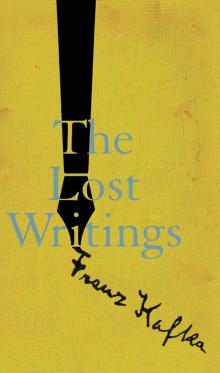 The Lost Writings
The Lost Writings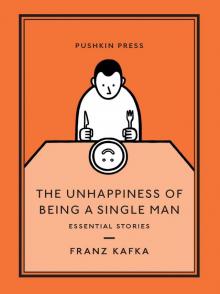 The Unhappiness of Being a Single Man
The Unhappiness of Being a Single Man Amerika: The Missing Person: A New Translation, Based on the Restored Text
Amerika: The Missing Person: A New Translation, Based on the Restored Text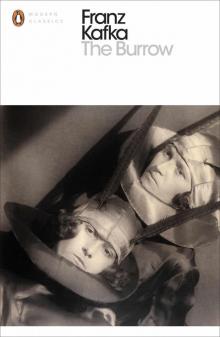 The Burrow: Posthumously Published Short Fiction (Penguin Modern Classics)
The Burrow: Posthumously Published Short Fiction (Penguin Modern Classics)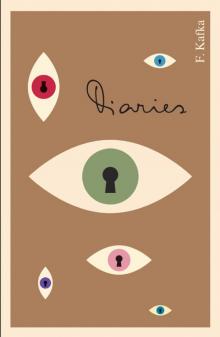 The Diaries of Franz Kafka
The Diaries of Franz Kafka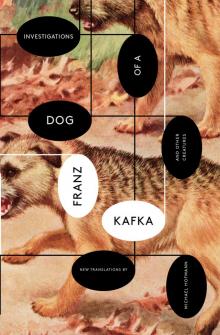 Investigations of a Dog
Investigations of a Dog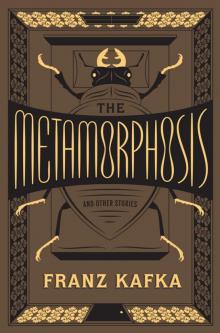 The Metamorphosis and Other Stories
The Metamorphosis and Other Stories The Trial: A New Translation Based on the Restored Text
The Trial: A New Translation Based on the Restored Text